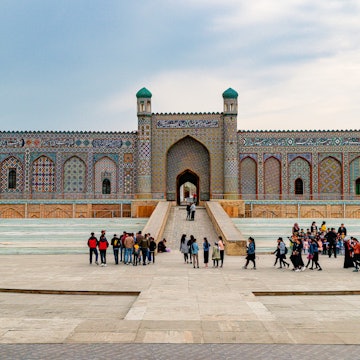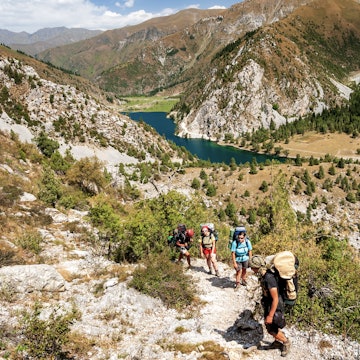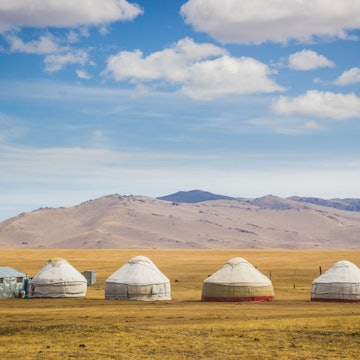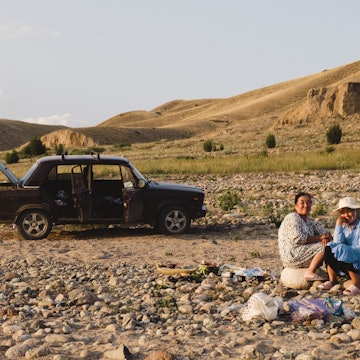
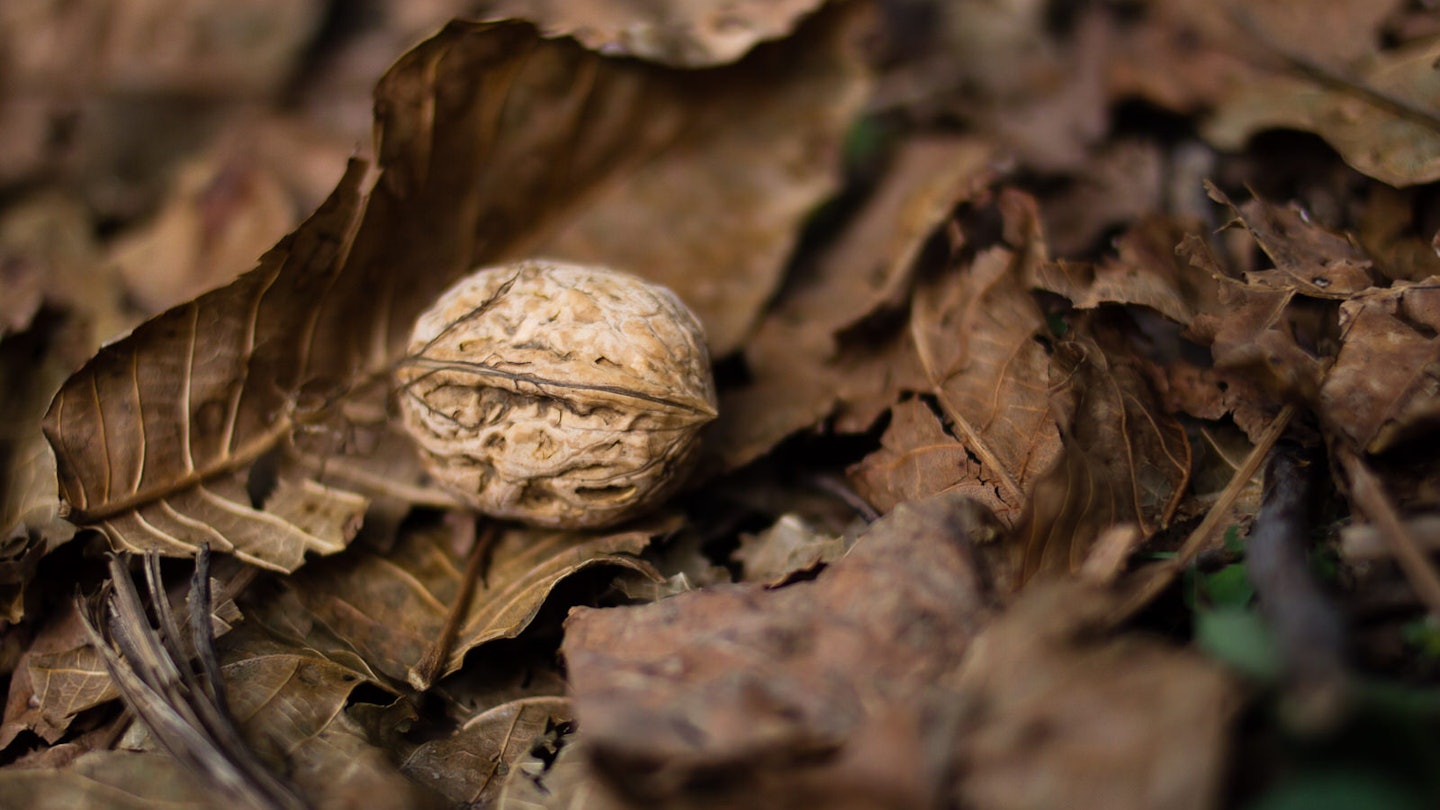
An unshelled walnut sitting on brown leaves on the forest floor © Stephen Lioy / Lonely Planet
A cool breeze rustles leaves overhead as families call out to one another through the woods, punctuated by the quiet sound of walnuts dropping to the forest floor. These are the forests of Arslanbob, an uncommon landscape in a country more famous for being 90% mountainous. And for two months each fall, these forests also become the social and economic heart of Arslanbob, as villagers move to the forests en masse.
Travellers to Kyrgyzstan are more often drawn by horse-riding nomads and remote mountain lakes than to the small peaceful pockets of forest in the south of the country, but in Arslanbob, the combined appeal of splendid landscapes and hospitable local culture has been quietly attracting a few travellers to the village and its surrounds.

Community-based tourism in the forests of Arslanbob
In late September or early October each year, a handful of international visitors wander through the village. They're here not for trekking in the surrounding Babash-Ata mountains (it's too late, too cold) or skiing the backcountry slopes that will be covered in snow within a few months. They've come for Arslanbob's annual walnut harvest. The traditional harvest has been repeated over hundreds of years: villagers spend days in the forests, finished off with meals among friends and family, or long evenings of drinking tea. Many village residents spend months at a time in the forests, where daily life revolves around the trees – collecting walnuts, preparing them for sale in local markets and carting them off to the village to make a profit.

Arslanbob is located in the centre of Kyrgyzstan, at the end of a long road out of Jalal-Abad, the country's third-largest city. The village's surprisingly busy centre buzzes with locals streaming in and out of minibuses and shared taxis, calls to prayer from the village mosque. The din of shoppers bargaining with vendors murmurs down a line of shops along a small road that crosses the town's namesake river to the main bazaar. Wander down any street, though, and this buzz gives way to the peaceful sounds of a rural village.
Arslanbob's tourist-facing identity is built on that village vibe, and the local community-based tourism (CBT) office emphasises that. The office has numerous social projects in Arslanbob – from installing park benches to setting up ski courses and running bike races. The CBT thinks tourism should help spread income across the local community, and visitor experiences in the area are built on this premise through a long roster of villagers interested in working with tourists. Travellers stay in family-run guesthouses and eat home-cooked meals. Local guides provide excursions to nearby mountains and lakes. And in autumn, as the walnut harvest starts, visitors venture deep into the forests to experience this local tradition first-hand.

Life with a local family
Hosting travellers here are locals like Anvar, whose family plot of land is around an hour’s walk from the centre of Arslanbob. Each morning, before the sun has even crested the surrounding mountains, the children have already left the family tent to start searching for walnuts that have fallen from the branches overnight. After breakfast, most often local borsook (fried bread) with fresh cream, the young boys will climb to the high limbs of these trees and use the whole of their insubstantial body weight to shake even more of the nuts free. This sound of walnut husks bouncing from bough to bark to forest floor punctuates the day at irregular intervals from every direction. As the boys finish swaying up in the branches, down below the daughters of the family move in to fill sacks with the fallen fruits. While a slow year might only see 500kg collected, a good harvest can bring in more than triple that. Either way the small additional income from hosting travellers, whether offering a place to stay or just a midday meal, contributes to the thin profits that Anvar's family will count on to see them through the winter season.
Traditions of hospitality
Playing host to travellers and passers-by is a long tradition in Arslanbob – many claim as a sort of origin story that Alexander the Great's soldiers tarried here. Wounded and weary, the tale goes that they rested and hunted in these forests before resuming their long journey back to Europe – pockets filled with nuts that would plant Greece's first walnut forests. Whether the legend is true or not, modern tourists seek much the same: rest, and a chance to immerse themselves in local life.
Life in the forest is simple, and visitors should expect few services or infrastructure. But waking up to share meals with a family and join in their wandering through the forest each day does bring many opportunities to connect with local culture. Laughs as a youngest son climbs high in the trees. Economic insights on how the unshelled fruits become a currency, accepted for trade at temporary stores that spring up along the forests' dirt roads. This in turn provides basic commodities for which families would otherwise have to return to the village.

The other lingering reminder of these months in the forest, Anvar says with a smile, is his family’s hands. Dyed brown from the constant picking and shaking and peeling, the colour of these oily shells will linger long into the winter as a souvenir of the annual walnut harvest, staining the skin of tourists and locals alike as they live together among the trees. Visitors looking for an authentic cultural experience will find as unique as this local tradition hidden among the forests of Arslanbob.
Make it happen
Arslanbob is located in southern Kyrgyzstan, 3½ hours' drive or bus ride from Osh. The local CBT office can arrange walnut excursions during the autumn harvest season, as well as treks, horse riding, camping and homestays with local families all year round.
















